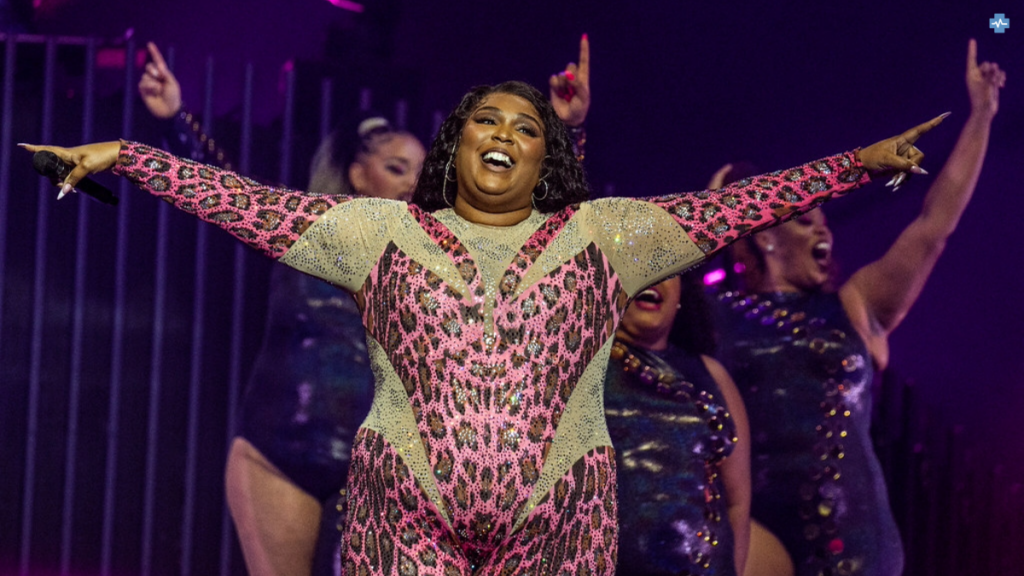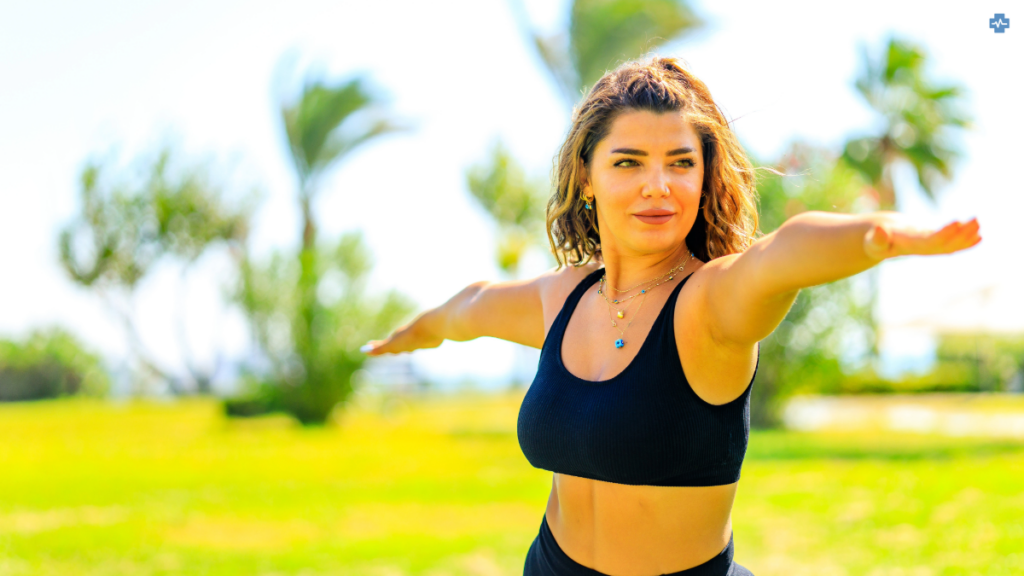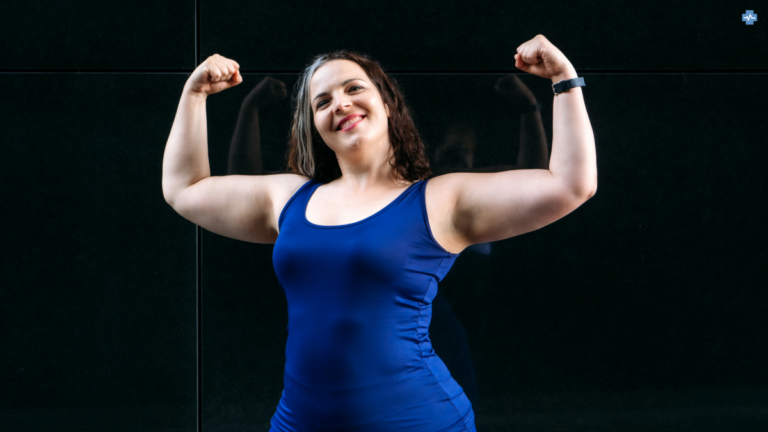Characters such as Lizzo and professional athletes have conceptually and practically moved the fitness industry far from chiseled physiques and tough workouts. However, Lizzo herself uses her platform to advocate for body neutrality and self-love by telling her followers to pay attention to their minds and bodily function, not the aesthetic qualities of the body. It’s a shift in the culture of fitness to a greater movement toward more mindful practices, such as yoga, dance therapy, and even functional fitness-those that honor how the body feels and functions rather than how it looks.
The other famous stars are also giving shape to this narrative. For instance, Dwayne “The Rock” Johnson often showcases the mental clarity and discipline which flow from being in shape. Serena Williams shows strength and endurance from most grueling training, celebrating the power and functionality of a female body. Also, Adele talked about how her fitness journey was because of mental health and not weight loss. They have been using their platforms to push the boundaries toward making exercising a means of empowerment, mental clarity, and good health, while fitness culture is more inclusive and sustainable, celebrating body diversity and individual growth.
Lizzo’s Approach to Fitness and Body Neutrality

Lizzo is an American singer, rapper, and flautist known for her powerful messages of self-love, body positivity, and empowerment. Born Melissa Viviane Jefferson, Lizzo rose to fame with her unique blend of pop, hip-hop, and R&B, alongside her unapologetic promotion of body diversity and self-acceptance. Songs like “Truth Hurts” and “Good as Hell” have become anthems for confidence and independence.
Lizzo has been a key advocate for what she terms “body neutrality,” a movement that distances itself from traditional body positivity. While body positivity champions loving one’s body regardless of its size, Lizzo encourages a more neutral stance. In her view, body neutrality means prioritising health, mental well-being, and functional fitness, focusing on what the body can do rather than how it looks. In her own fitness journey, Lizzo has shared that her workouts are not about weight loss or conforming to beauty standards but about maintaining stamina for her performances, improving mental health, and feeling good in her own skin.
Lizzo has also voiced her concerns over the commercialisation of body positivity, suggesting that mainstream media and fashion have co-opted the movement, often excluding those it was meant to empower. She argues that the focus has shifted towards a more marketable version of “curviness,” which continues to alienate certain body types. Her influence has thus ignited broader discussions about how fitness culture should be more inclusive and celebrate all bodies, without placing aesthetics at the centre of the conversation.
Athletes and Their Role in Fitness Culture
In addition to celebrities like Lizzo, professional athletes are also contributing to this evolving fitness narrative. Many athletes now actively share their fitness routines, recovery strategies, and mental health journeys on platforms like Instagram, YouTube, and Twitter. This transparency offers the public an inside look into what it truly takes to stay at the top of their game, helping to demystify professional fitness. By showcasing not only the triumphs but also the setbacks, such as injuries or mental struggles, athletes make their fitness routines more relatable and attainable to the everyday individual.
This open approach has several positive impacts. Firstly, it serves as a source of education and inspiration. Athletes often post workout ideas, diet plans, and advice on how to recover from workouts or injuries. More importantly, these routines focus on functional fitness, which emphasises movement efficiency, strength, and endurance for everyday life rather than just achieving a specific physique. Secondly, by sharing personal challenges, athletes foster a sense of community around fitness, where people of all skill levels can exchange support and advice. This contributes to a fitness culture that is more inclusive, empowering, and less intimidating.
Impact on Fitness Trends

In fact, Lizzo’s body neutrality and athletes’ frankness about fitness create palpable effects on today’s fitness trends. Of these, one rather good noticed trend shift in awareness would be that of mental health. Examples include the kinds of Lizzo that stress mental clarity, stress, and emotional balance through workouts that support beliefs that exercises must be a practice to better one’s mental state, not a form of punishment for physical imperfections.
The fitness industry is moving toward more customised and accessible workouts, with a focus on finding routines that suit individual lifestyles. Whether it’s high-intensity interval training (HIIT), yoga, or dance, public figures showcasing their diverse fitness regimens inspire others to find what works for them, rather than adhering to rigid, one-size-fits-all programs. Additionally, technology is playing a crucial role in this evolution, with athletes and celebrities endorsing fitness apps, wearables, and online coaching programs. This tech integration allows people to track their progress, plan their workouts, and participate in virtual fitness challenges, making fitness more engaging and accessible.
Shifting Towards Body Functionality
The shift towards body functionality in fitness culture reflects a growing appreciation for what the body can do, rather than how it looks. Unlike traditional, aesthetic-driven fitness goals that focus on weight loss or muscle definition, the functionality approach prioritises strength, endurance, and mobility. This movement is largely inspired by public figures like Lizzo, who champions a mindset of body neutrality, and athletes who focus on performance over appearance. People are increasingly adopting exercise routines that help them perform daily tasks with greater ease, build stamina for sports, or simply improve their overall well-being. Whether it’s lifting weights to enhance strength, practising yoga for flexibility, or focusing on cardiovascular fitness for heart health, the trend is shifting away from a narrow view of physical perfection to a broader appreciation of physical capability.
This transition also aligns with the larger self-care movement, which emphasises the importance of mental and physical health. Fitness is now being seen as a tool to improve mental clarity, reduce stress, and foster a balanced lifestyle, rather than solely a means to alter one’s physical appearance. Many influencers and fitness professionals are advocating for an inclusive approach to health, where feeling good and achieving personal milestones are valued over meeting societal expectations. The emphasis on body functionality empowers individuals to tailor their fitness routines to their unique needs and goals, making fitness more accessible and sustainable for a diverse range of people. This change in perspective is helping to redefine what it means to be fit, focusing more on capability, resilience, and personal growth rather than just physical aesthetics.
The Evolving Fitness Industry
Lizzo and professional athletes alike are leading a revolution of changing dynamics in the world of fitness. Fitness has far less to do with achieving a “perfect body” than with fostering mental well-being, physical functionality, and self-acceptance.
The integration of technology, the emphasis on mental health, and the growing focus on body positivity are reshaping the industry in ways that make fitness more inclusive and accessible than ever before. As more people embrace these shifts, the fitness culture of tomorrow is likely to prioritise holistic health and individual empowerment over conformity to societal ideals

